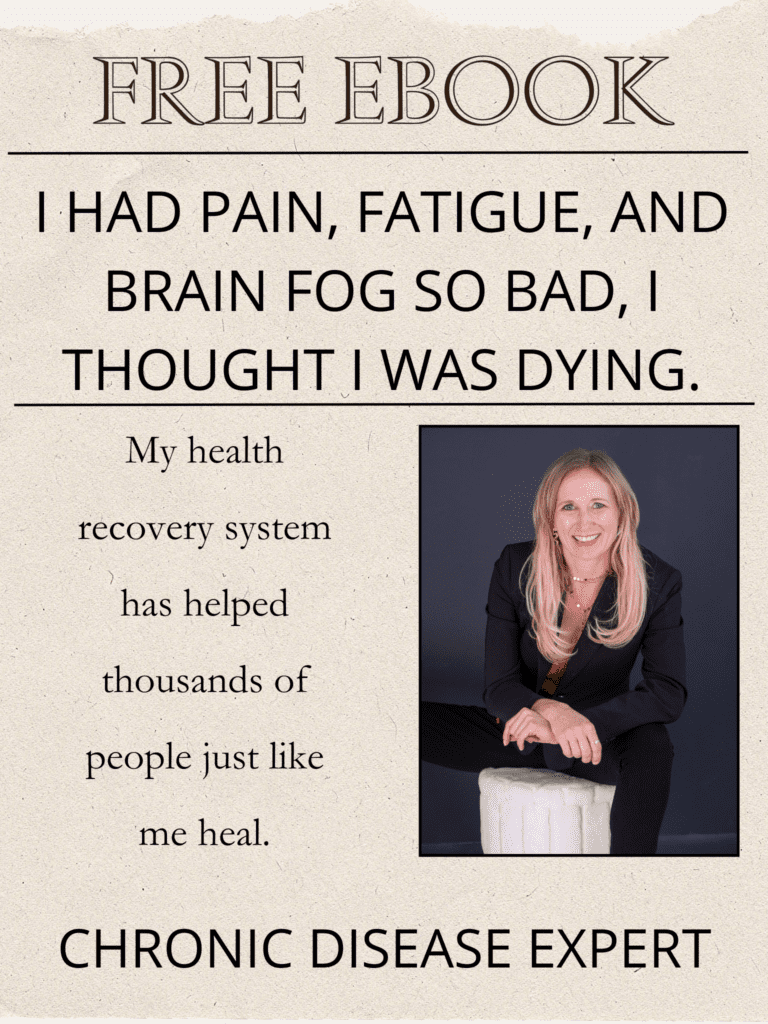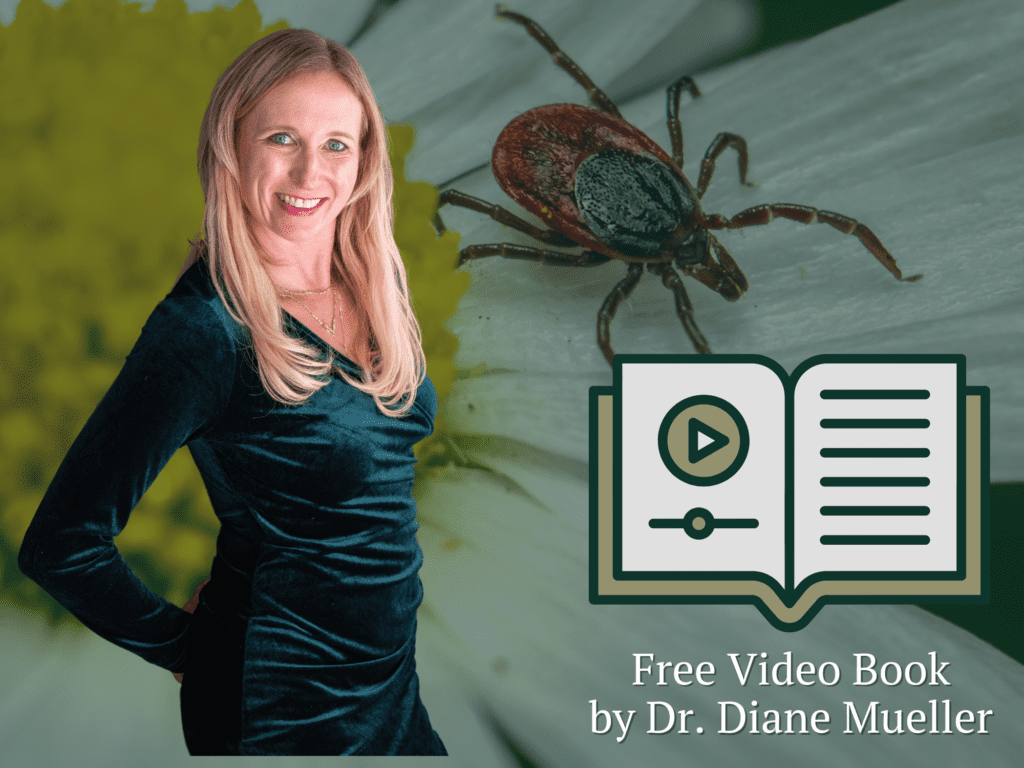

by Dr Diane Mueller – Dealing with Lyme disease can be a real headache, and not just because of the actual symptoms. The worst part might be how often it’s misunderstood by doctors… and you’re definitely not alone in looking for a doctor who actually knows how to treat Lyme successfully.
Blame it on Borrelia burgdorferi – that’s the sly bacteria causing all this trouble, giving you fevers, headaches, fatigue and skin rashes. It’s definitely not your run-of-the-mill bacterial infection which makes diagnosing and treating difficult to do. So where do you go from here? Let’s dive in and find out!
We have helped thousands of people restore their health and quality of life by diagnosing and treating Lyme Disease
Lyme-literate doctors (LLMDs) are healthcare pros with a deep understanding of Lyme, including its diagnosis and treatment. They recognize the possible stubborn nature of the bacterium post-treatment and the wide range of symptoms that may pop up.
The credibility of a potential doctor depends on their experience, expertise, and adherence to scientifically backed Lyme diagnosis and treatment guidelines. Helpful resources in finding an LLMD could include online Lyme disease patient groups, forums, and websites with directories of Lyme literate medical providers.
Lyme-literate doctors take a personalized approach to treatment, looking at all symptoms and aspects of a patient’s health. They stay on top of the latest research and may use a mix of medical treatments, lifestyle changes, and alternative therapies.
It helps to have good questions about the doctor about their experience with Lyme disease, their treatment approaches, and their philosophy towards patient care and continuous learning. This vetting process can lead to a successful partnership in managing Lyme disease.
Prep for an appointment with a Lyme literate doc should include tracking symptoms, having your medical history ready, researching and preparing specific questions and treatment, knowing about commonly prescribed meds, and exploring alternative treatment options.
The complexities of Lyme disease, caused by the bacterium Borrelia burgdorferi transmitted via tick bites, calls for a nuanced understanding. Proper diagnosis, comprehensive treatment plans, and most importantly, a Lyme literate doctor are the ideal response to this medical challenge.
Lyme Literate Medical Doctors (LLMDs) are a unique breed of healthcare providers. They’re experts in detecting, diagnosing, and treating Lyme disease, especially its chronic form (Chronic Lyme Disease – CLD). These practitioners go beyond conventional medicine, recognizing the potential persistence of Borrelia burgdorferi post-treatment and the range of symptoms that may follow.
What sets these doctors apart from their mainstream counterparts is that LLMDs acknowledge test results can sometimes mislead and understand Chronic Lyme Disease CLD is a real thing. They support the idea that chronic symptoms may stem from active infection, advocating for extra antibiotics if symptoms persist after initial treatment.
While conventional medical wisdom says Borrelia burgdorferi doesn’t stick around at harmful levels after standard antibiotic therapy, Lyme Literate Doctors argue that Lyme disease is a tick-borne pathogen that might need additional treatments for persistent infection
Getting support from a Lyme literate doctor can be a game-changer in effectively tackling Lyme disease. But finding the right LLMD isn’t always a walk in the park.
A thorough search starts with knowing that being ‘Lyme literate’ is a self-designation – there’s no official body that certifies or regulates these practitioners. So a potential doctor’s credibility largely depends on their experience, expertise, and adherence to scientifically backed Lyme diagnosis and treatment guidelines.
Personal recommendations are another reliable route, whether from someone who’s had a positive experience with a particular LLMD or from your primary healthcare provider.
Finally, when you set up a consultation, assess if the doctor takes a holistic approach to Lyme disease, open to examining all symptoms and aspects of your health. It’s key they stay updated with recent research, tailor treatments individually, and offer support and empathy during your Lyme disease journey.
When dealing with a condition as complex and multifaceted as Lyme, having an experienced, Lyme-literate doctor by your side is crucial. These specialized medical pros not only recognize the intricate nuances of Lyme disease but also dedicate their practice to staying on top of the latest research, ensuring precise diagnosis and delivering the most effective treatment plans.
Identifying Lyme disease early, based on symptoms, boosts the success rate of treatment. An initial symptom can be a distinctive circular skin rash, commonly called erythema migrans. But Lyme’s range of manifestation goes beyond the skin, affecting joints, the nervous system, and even heart tissue. These include flu-like symptoms, severe fatigue, cognitive issues or “brain fog”, joint and muscle pain.
As Lyme is known as a mimic disease, it can show symptoms similar to many other conditions, confusing the diagnosis process. This is where a Lyme-literate doctor’s expertise shines. Their deep knowledge of Lyme symptomatology allows them to differentiate these symptoms from those of other conditions, optimizing diagnostic accuracy.
Accurately diagnosing Lyme disease is a complex process. It involves considering your medical history, symptoms, and potential exposure to ticks. Tests for Lyme disease detect antibodies made in response to the infection rather than the bacteria itself. But diagnosing based solely on testing can be unreliable due to occasional false positives and negatives.
Lyme-literate doctors use a broad knowledge base and eye for detail in the diagnostic process. They usually take a more comprehensive approach than relying solely on lab results, making them more precise in their conclusions.
Once diagnosed, Lyme disease treatment primarily involves a regimen of antibiotics. If untreated or not treated early enough, the bacteria can spread to various parts of your body, leading to more severe symptoms that can persist for months or years, a condition known as Post-Treatment Lyme Disease Syndrome (PTLDS).
Good LLMDs are knowledgeable about the randomness of the disease’s symptomatology and behavior, and provides an individualized, patient-centered approach to treatment. Their strategies often involve a combination of medical treatments, lifestyle modifications, and possible use of alternative therapies.
Finding a Lyme literate doctor versed in the intricacies of this condition can pave the way to a successful recovery. It’s advised to use the wide range of online resources, check credibility, experience, and adherence to professional guidelines when choosing your Lyme disease treatment provider. Remember, your health is important. Prioritizing it by seeking expert care is essential in dealing with Lyme disease.

Choosing a Lyme Literate Doctor is key in diagnosing and managing chronic Lyme disease. Be sure to consider their experience with the disease and their treatment methodology when selecting a doctor.
When considering an LLMD, ask about their experience with Lyme disease. Inquire about the number of Lyme disease cases they’ve treated, their success rate, and their familiarity with co-infections common to Lyme disease. The Tickborne test, for instance is the most comprehensive panel available to detect diseases transmitted via ticks to humans.
Remember, older, more established doctors might have more experience, but younger doctors could be more updated on recent research and innovative treatments. So experience isn’t just about years in practice but also the quality of knowledge and staying current on Lyme disease research.
You’ll want to engage with a doctor whose treatment approach aligns with your expectations. Some doctors may heavily rely on antibiotic treatments, putting Lyme infections into a dormant state. Alternatively, a doctor might be open to more holistic or new treatment procedures.
Also, ask about their philosophy towards patient care. A good LLMD will emphasize individualized treatments, requiring personalized appointments and a thorough understanding of your medical history. They might invest in comprehensive diagnostic procedures, as Lyme disease is notorious for its elusive nature and often evades standard testing.
Finally, find the physician’s philosophy towards constant learning and adapting newer, scientific approaches. Remember, it’s not just about deciding the right antibiotics, but also understanding when they are inadequate or detrimental.
Choosing the right Lyme Literate Doctor can take time, but it’s worth the effort. Lyme disease affects not only your physical health but might impact your mental and emotional wellbeing. It’s crucial the doctor you choose understands the multifaceted nature of this illness and helps you navigate the journey towards healing.
As you set up an appointment with a Lyme Literate Medical Doctor (LLMD), certain preparations boost the effectiveness of your visit. Let’s break down essential tips into manageable steps.
Document Your Progress & Symptoms: It is essential to meticulously track and record the progression of your health condition, specifically focusing on any symptoms such as fever, fatigue, headaches or skin rashes. By maintaining a detailed record, you enhance the possibility of an effective diagnosis.
Consider Alternative Therapies: Encourage dialogue about therapeutic approaches beyond traditional antibiotics and herbal remedies.
Understand Your Drugs: Acknowledge that while antibiotics may alleviate your symptoms, they might not provide a complete cure for Lyme disease. The bacteria responsible for Lyme disease possess unique structural features enabling them to resist antibiotic therapies. Appreciating this fact can encourage discussions concerning alternative therapeutic options.
Conduct Research and Formulate Inquiries: To maximize the efficacy of your consultation, it is advisable to conduct thorough research on Lyme disease. Formulate specific inquiries regarding the diagnosis procedure and treatment alternatives. Consider that you may be contending with a chronic manifestation of this condition.
Maintain Your Medical History Accessibly: A Lyme Literate Medical Doctor (LLMD) evaluates your health from a comprehensive perspective. Therefore, having an accessible record of your past and current medical conditions including all treatments – both herbal and antibiotic-based – facilitates their diagnostic process.
These tips, when heeded, can significantly increase the productivity of your visit. They arm you with pertinent questions and a background for an informed discussion about treating your Lyme disease. Remember, your LLMD provides a guiding light in your journey. With efficient communication, you can shine that light exactly where it’s needed.
Finding the right docs who really know their stuff about Lyme disease can be a total game changer on your road to feeling better. They’re like the super sleuths of chronic Lyme, because they get all its ups and downs. Jot down what you’ve been feeling, gather up your health history, and think up some questions to make sure you’re getting the most out of your chat with them. Get clued in on antibiotics and have a think about other treatments too. But most importantly, stay on top of things and keep an active role in how you’re treated. Your journey to beating Lyme starts when you find the perfect Lyme savvy doc nearby – consider this guide as your shortcut!

We have helped thousands of
people restore their health
and quality of life by diagnosing
and treating their Lyme Disease.
“Dr. Mueller’s approach to medicine is refreshing! There is only so much you can do with western medicine and in my life I was needing a new approach. By addressing the whole body, nutritional diet factors, environmental factors, blood work, and incorporating ideas I had not previously known, I was able to break through with my conditions. I am not only experiencing less pain in my life, but through the process of healing guided by Dr. Diane Mueller, I am now happy to say I have more consciousness surrounding how I eat, what to eat and when things are appropriate. Living by example Dr. Mueller has a vibrancy that makes you want to learn and know more about your body and overall health. I highly recommend her to anyone looking for new answers, a new approach to health, or in need of freedom from pain and limitations.”
-Storie S.
Kihei, HI
